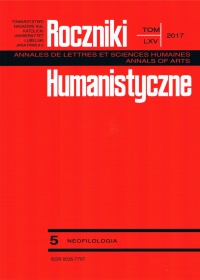Slavic Borrowings in the Hungarian Language
Abstract
The article discusses (not aspiring to completeness) 130 Slavic borrowings in the Hungarian language. These borrowings are mostly related to the rural life and agriculture. When the nomadic Finno-Ugric people, who came from the territories east of the Ural Mountains, finally settled down and started to cultivate soil, they had to acquire the terminology related to the new way of life.
References
Bańkowski, Andrzej. Etymologiczny słownik języka polskiego. T. I: A-K, T. II: L P. Warszawa: Wydawnictwo Naukowe PWN, 2000.
Boryś, Wiesław. Słownik etymologiczny języka polskiego. Kraków: Wydawnictwo Literackie, 2005.
Brückner, Aleksander. Słownik etymologiczny języka polskiego. Warszawa: Wiedza Powszechna, 1957.
Deroy, Louis. L’emprunt linguistique. Paris: Les Belles Lettres, 1956.
Długosz-Kurczabowa, Krystyna. Wielki słownik etymologiczno-historyczny języka polskiego. Warszawa: Wydawnictwo Naukowe PWN, 2008.
Havas, Lívia, Sándor Skripecz et István Varsányi. Magyar-lengyel zsebszótár. Budapest: Terra, 1965.
Oliva, Karel, Marie Kulošová et Josef Zdenko Svoboda. Polsko-český a česko-polský kapesní słovník. Praha: Státní pedagogické nakladatelství, 1963.
Paul, Hermann. Deutsches Wörterbuch. Halle: Max Niemeyer, 1960.
Reychman, Jan. Słownik rumuńsko-polski. Pod red. prof. dra Jana Reychmana. Warszawa: Wiedza Powszechna, 1970.
Sławski, Franciszek. Słownik etymologiczny języka polskiego. T. I–V: A–Łżywy. Kraków: Towarzystwo Miłośników Języka Polskiego, 1952–1982.
Varsányi, István. Lengyel-magyar zsebszótár. Budapest: Terra, 1965.
Żurawski, Sławomir. Obyczaje, języki, ludy świata. Warszawa: Wydawnictwo Naukowe PWN, 2006.
Copyright (c) 2017 Roczniki Humanistyczne

This work is licensed under a Creative Commons Attribution-NonCommercial-NoDerivatives 4.0 International License.





